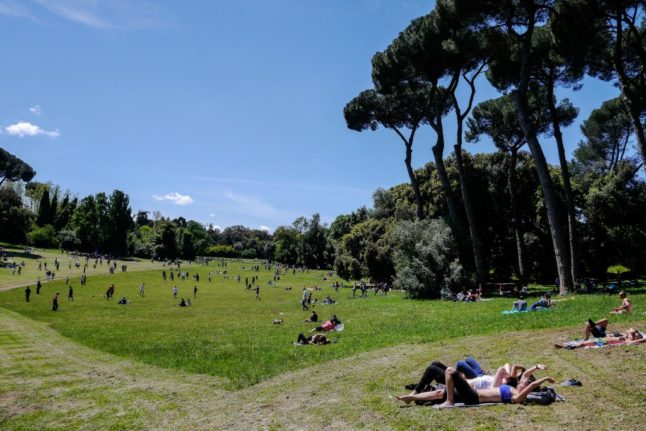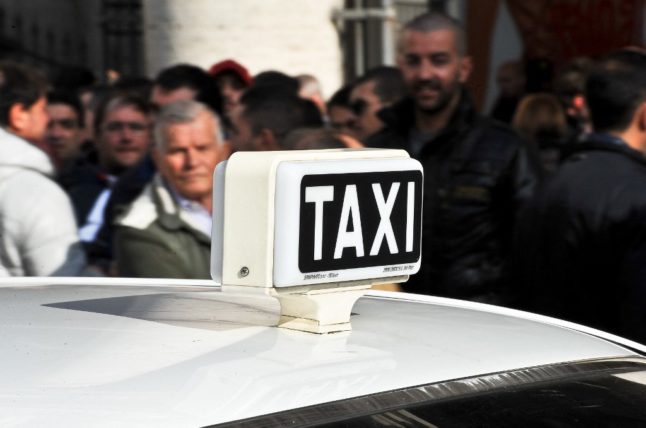First established back in 1890 to celebrate workers’ rights and the achievements made by Italian trade unions, Labour Day (or Festa del Lavoro) is a national public holiday in Italy, meaning a day off for many around the country.
Generally speaking, much of Italy tends to grind to a halt on public holidays and Labour Day is no exception as some services will be significantly limited or, at times, even unavailable on the day.
But what exactly can you expect to find open, or closed, next Wednesday?
Public transport
Most local public transport companies in the country will operate on a reduced timetable (also known as orari festivi) on May 1st, with the quality and frequency of services during the day likely to vary significantly between rural and urban areas, as well as between cities.
Areas that are usually served by just the occasional bus may see stripped-to-the-bone services on Wednesday, whereas parts of the country that already have robust public transport networks should keep them fairly active.
Having said that, Labour Day transport services in both urban and rural areas may experience delays and/or cancellations this year due to a 24-hour general strike involving staff from public and private operators around the country.
There’s currently little information available as to exactly how the walkout will affect travel on Wednesday and what level of disruption passengers can expect, though further details are expected to become available closer to the date of the walkout.
You can keep up with all the latest updates in our strike news section.
Rail and air travel
Much like public transport services, regional and local trains will run on fairly reduced timetables on Wednesday, whereas most interregional and long-distance high-speed trains will run on standard weekday timetables.
However, the normal operation of these services may be affected by the above-mentioned 24-hour general strike.
As for air travel, inbound and outbound flights shouldn’t be affected by the strike, according to the latest reports.
Schools and offices
Public schools in all Italian regions will be closed on May 1st.
Pupils in Molise and Liguria will enjoy a longer break as they’ll be home from school on Monday, April 29th and Tuesday, April 30th as well.
As it’s usually the case on national public holidays, offices in both the public and private sector (this includes banks, post offices, town hall desks and CAF fiscal assistance centres) will be closed.
Tourist attractions
Most state-run museums and archaeological sites, including Florence’s Galleria dell’Accademia and Rome’s Colosseum, will be open on Wednesday, though some may have slightly reduced hours, which is why it’s advisable to check the opening times in advance if you have a specific site you want to visit in mind.
Privately run museums, galleries or collections may be closed on the day.
Pasticcerie, panifici and restaurants
Some panifici (bakeries) and pasticcerie (pastry shops) in major cities may remain open on Wednesday morning to allow customers to buy bread and sweets for their Labour Day lunch.
Many restaurants will remain open on Labour Day to welcome the families who choose to dine out for the holiday. But if you’re planning on eating out on that day, it’s advisable to make a reservation in advance to avoid any unpleasant surprises later on.
Shops and supermarkets
Many supermarket chains around the country will have limited opening hours on Wednesday. For instance, some may open around 9 in the morning and then close in the early afternoon.
Most mini-markets will remain completely closed instead.
Most shops in non-urban areas will be closed on Wednesday, whereas businesses in big cities around the country may open for either the morning only or the afternoon only.
Doctors and pharmacies
GPs’ clinics will be closed on Wednesday.
However, should you be in need of an urgent appointment, you can ask to see a doctor from Italy’s Guardia Medica, a medical care centre that operates outside of GPs’ normal working hours and on weekends, or visit your local hospital’s ER (pronto soccorso).
Should you need to buy medicines or pick up a prescription, pharmacies in Italy operate a rota system during national holidays to ensure that at least one is open in each area.
To find the nearest one, Google farmacia di turno plus the name of the municipality (or comune) you find yourself in.



 Please whitelist us to continue reading.
Please whitelist us to continue reading.
Member comments